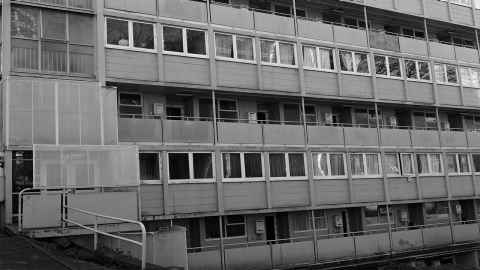Lockdown reality for ‘other’ NZ
16 April 2020
Opinion: Scenes of privileged families locked down with designer kitchens and overflowing pantries obscures social suffering of the less well-off, writes Ian Hyslop.

There are numerous uncertainties surrounding these days of Covid-19 in Aotearoa-New Zealand and across the globe. From a social work perspective, it is hard to know where to begin, with the burdens carried by social workers in the present, or with the possibilities facing the planet in the longer run.
Whichever we chose, there is one certainty and that is social suffering. It’s the stock-in-trade of social work and an assured outcome of a crisis like this that we know will impact unevenly in structurally unequal societies like ours.
What might this mean now and into the future?
Already, lockdown in Aotearoa-New Zealand is multiplying the strains on the many children and families who don’t have the luxury of material security: warm homes, possessions, savings and middle-class social capital.
Middle class life, and the burning questions of recipes and on-line exercise routines and educational software, is somehow perceived to be a shared narrative.
Not that you would know this from watching the nauseating television features that seem to assume that the trials (and solutions) facing the inconvenienced well-off – with their over-flowing pantries, gleaming designer kitchen islands and endless technological aids for their beautiful and entitled children – have any meaning to the other New Zealand of bare floors, cold, damp, scarcity, trouble and anxiety.
I can only think that privileged people actually believe that the insulated bubbles of plenty presented in such ‘distraction television’ programmes represent a common reality – that the other reality does not exist. And, for many, I guess it doesn’t. Middle class life, and the burning questions of recipes and online exercise routines and educational software, is somehow perceived to be a shared narrative. The clever solutions to boredom are something we can all take pride in.
We don’t see the struggles of the other New Zealand on our TV screens – it is not what the ‘we are all in this together’ message is made of. We might get the odd flick to the tireless food bank helpers boxing up parcels – but, of course, those at the bottom of the neoliberal heap are disenfranchised in our social system and only get to be on TV in the form of shock and scandal bait.
However, social work is the occupation that walks – sometimes without invitation – into the homes of disenfranchised citizens every day.
The inadequacy of greed-based economics is exposed in this encounter, although pushing the problem back up the chain to where it originates – in the flaws inherent to liberal capitalism – has been carefully erased from most social work job descriptions over the last 30 years. These are demanding times for social work in so many ways.
We don’t see the struggles of the other New Zealand on our TV screens – it is not what the ‘we are all in this together’ message is made of.
This takes me to the bigger picture. I would not want to appear disloyal in this period of high-stakes national emergency. This is clearly a time for unity and the Ardern coalition government has done a very impressive job to date, saving lives by going hard, going early and going carefully. Ego has not got in the way of medical advice about how to combat rampant infectious disease. I think readers will have little trouble thinking of world leaders who have been less effective.
In Aotearoa-New Zealand and the wider world there are some fascinating questions in the medium- to long-term. We will doubtless see a bigger role for the state in our economy for some time as we adapt to national life in a shared bubble. We may see an ongoing return to Keynesian economic stimulus (that is, more government spending to bring the economy out of a depression) and a more insular welfare state model here and in comparable liberal societies. We may see revolutionary change.
The optimist in me sees that all non-human life is having a brief respite from our predatory and destructive actions. Will we rush back to a world economy bent on endless growth and commodity consumption or do we – just maybe – have the capacity to re-think a path that is rapidly leading to planetary self-destruction? Or will the rich and powerful elite merely step on the gas and rev this sucker up again as soon as possible? After all, there is no alternative: (Yeah, Right??)
Will the invasive technologies of population-tracking and behavioural control that are employed in the Chinese model of state capitalism be further legitimated in liberal democracies by this time of fear and existential crisis? I am happy for science and technology to manage Covid-19 but I am less happy for science to manage the problems of class conflict in liberal society – too often this translates into a focus on rooting out the underclass threat. And it is often social workers who get to administer such packages of state dirty work.
We are in a time of distress and suffering globally and no doubt there is much more to come, particularly for the poor across the world. There is also an opportunity to re-imagine how a free and inclusive socialist society could be built, while we still have a planet to build it on.
A version of this opinion piece first appeared on Re-imagining Social Work in Aotearoa New Zealand
Dr Ian Hyslop is a senior lecturer in the School of Counselling, Human Services and Social Work, Faculty of Education and Social Work.
This article reflects the opinion of the author and not necessarily the views of the University of Auckland.
Used with permission from Newsroom Lockdown reality for ‘other’ NZ 16 April 2020.
Media queries
Alison Sims | Research Communications Editor
DDI 09 923 4953
Mob 021 249 0089
Email alison.sims@auckland.ac.nz